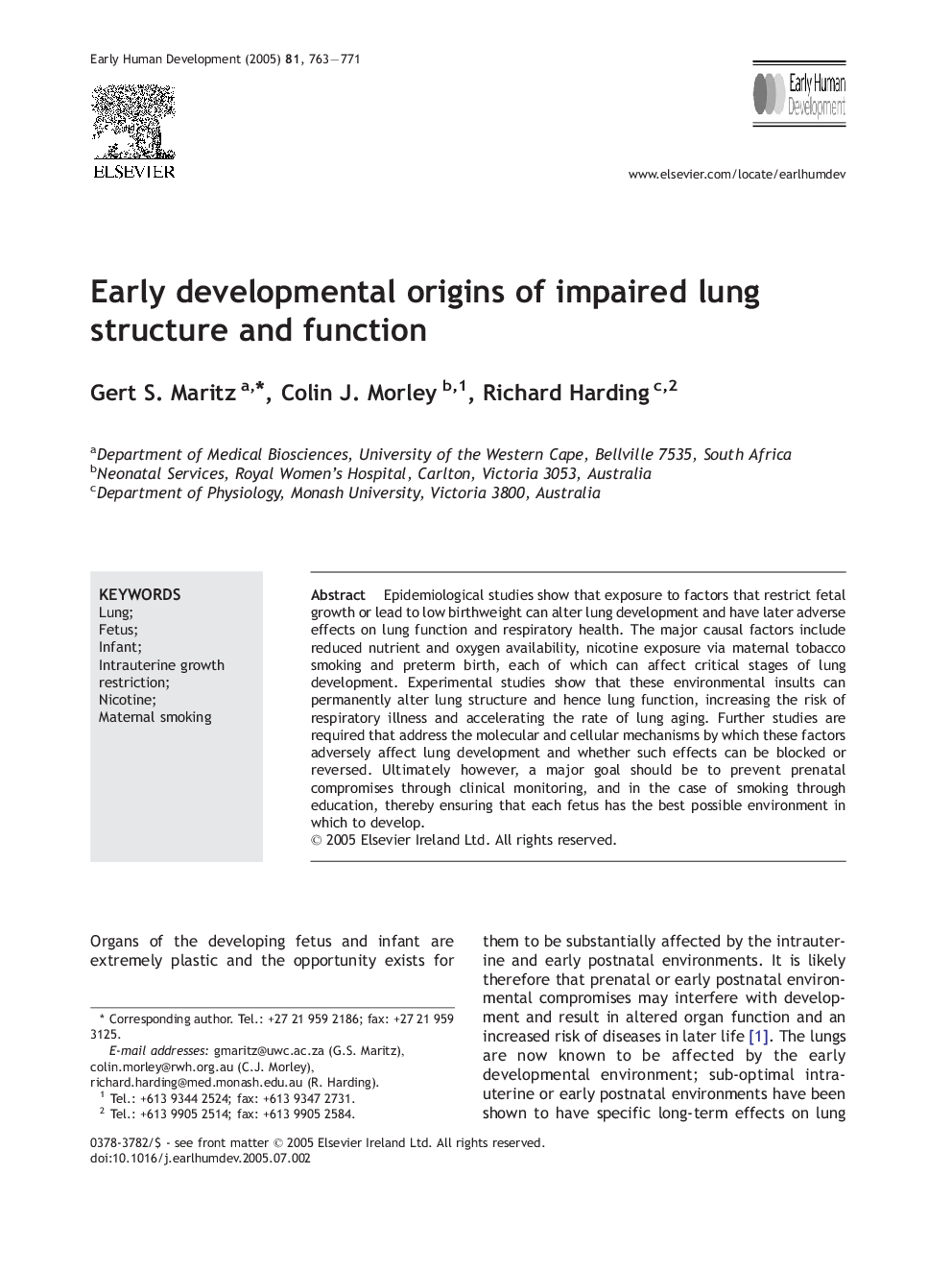| Article ID | Journal | Published Year | Pages | File Type |
|---|---|---|---|---|
| 9318831 | Early Human Development | 2005 | 9 Pages |
Abstract
Epidemiological studies show that exposure to factors that restrict fetal growth or lead to low birthweight can alter lung development and have later adverse effects on lung function and respiratory health. The major causal factors include reduced nutrient and oxygen availability, nicotine exposure via maternal tobacco smoking and preterm birth, each of which can affect critical stages of lung development. Experimental studies show that these environmental insults can permanently alter lung structure and hence lung function, increasing the risk of respiratory illness and accelerating the rate of lung aging. Further studies are required that address the molecular and cellular mechanisms by which these factors adversely affect lung development and whether such effects can be blocked or reversed. Ultimately however, a major goal should be to prevent prenatal compromises through clinical monitoring, and in the case of smoking through education, thereby ensuring that each fetus has the best possible environment in which to develop.
Related Topics
Health Sciences
Medicine and Dentistry
Obstetrics, Gynecology and Women's Health
Authors
Gert S. Maritz, Colin J. Morley, Richard Harding,
